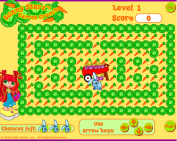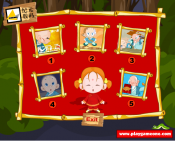智力开发
弗兰西斯·培根论读书
OF STUDIES
论读书
Francis Bacon
弗兰西斯·培根
(王佐良译)
Studies serve for delight, for ornament, and for ability。Their chief use for delight, is in privateness and retiring; for ornament, is in discourse; and for ability, is in the judgment and disposition of business。
读书足以怡情,足以傅彩,足以长才。其怡情也,最见于独处幽居之时;其傅彩也,最见于高谈阔论之中;其长才也,最见于处世判事之际。
For expert and execute, and perhaps judge of particulars, one by one; but the general counsels, and the plots and marshalling of affairs, come best form those that are learned。To spend too much time in studies is sloth; to use them too much for ornament, is affectation; to make judgment wholly by their rules, is the humor of a scholar。
练达之士虽能分别处理细事或一一判别枝节,然纵观统筹,全局策划,则舍好学深思者莫属。读书费时过多易惰,文采藻饰太盛则矫,全凭条文断事乃学究故态。
They perfect nature, and are perfected by experience; for natural abilities are like natural plants, that need pruning by study; and studies themselves do give forth directions too much at large, except they be bounded in by experience。
读书补天然之不足,经验又补读书之不足,盖天生才干犹如自然花草,读书然后知如何修剪移接,而书中所示,如不以经验范之,则又大而无当。
Crafty men contemn studies; simple men admire them; and wise men use them: for they teach not their own use; but that is a wisdom without them, and above them, won by observation。
有一技之长者鄙读书,无知者羡读书,唯明智之士用读书,然书并不以用处告人,用书之智不在书中,而在书外,全凭观察得之。
Read not to contradict and confute; nor to believe and take for granted;nor to find talk and discourse; but to weigh and consider。
读书时不可存心诘难读者,不可尽信书上所言,亦不可只为寻章摘句,而应推敲细思。
Some books are to be tasted, others to be swallowed, and some few to be chewed and digested: that is, some books are to be read only in parts; others to be read, but not curiously; and some few to be read wholly, and with diligence and attention。Some books also may be read by deputy, and extracts made of them by others; but that would be only in the less important arguments, and the meaner sort of books; else distilled books are, like common distilled waters, flashy things。
书有可浅尝者,有可吞食者,少数则须咀嚼消化。换言之,有只须读其部分者,有只须大体涉猎者,少数则须全读,读时须全神贯注,孜孜不倦。书亦可请人代读,取其所作摘要,但只限题材较次或价值不高者,否则书经提炼犹如水经蒸馏,淡而无味。
Reading maketh a full man; conference a ready man; and writing an exact man。And therefore, if a man write little, he had need h*e a great memory; if he confer little, he had need h*e a present wit; and if he read little, he had need h*e much cunning, to seem to know that he doth not。
读书使人充实,讨论使人机智,笔记使人准确。因此不常做笔记者须记忆力特强,不常讨论者须天生聪颖,不常读书者须欺世有术,始能无知而显有知。
Histories make men wise; poets witty; the mathematics subtle; natural philosophy deep; moral gr*e; logic and rhetoric able to contend。Abeunt studia in mores(Latin: studies go into forming one?蒺s character)。
读史使人明智,读诗使人灵秀,数学使人周密,科学使人深刻,伦理学使人庄重,逻辑修辞之学使人善辩;凡有所学,皆成性格。
Nay, there is no stand or impediment in the wit, but may be wrought out by fit studies: like as diseases of the body may h*e appropriate exercises。Bowling is good for the stone and reins; shooting for the lungs and breast; gentle walking for the stomach; riding for the head; and the like。So if a man?蒺s wit be wandering, let him study the mathematics; for in demonstrations,if his wit be called away never so little, he must begin again: if his wit be not apt to distinguish or find differences, let him study the schoolmen; for they are cymini sectores(Latin: dividers of cumin-seed);if he be not apt to beat over matters, and to call up one thing to prove and illustrate another, let him study the lawyers?蒺cases: so every defect of the mind may h*e a special receipt。
人之才智但有滞碍,无不可读适当之书使之顺畅,一如身体百病,皆可借相宜之运动除之。滚球利睾肾,射箭利胸肺,慢步利肠胃,骑术利头脑,诸如此类。如智力不集中,可令读数学,盖演题需全神贯注,稍有分散即须重演;如不能辩异,可令读经院哲学,盖是辈皆吹毛求疵之人;如不善求同,不善以一物阐证另一物,可令读律师之案卷。如此头脑中凡有缺陷,皆有特效可医。
文字是思想的外衣。
——王飞
儿童娱乐
-
少儿动画
智力游戏
-
-
1
乖乖虎之情景英语(下)
2015-12-07
-
2
乖乖虎之情景英语(上)
2015-12-07
-
3
乖乖虎之游戏数学(下)
2015-12-07
-
4
乖乖虎之游戏数学(上)
2015-12-07
-
5
乖乖虎之趣味识字(下)
2015-12-07
-
6
乖乖虎之趣味识字(上)
2015-12-07
-
1
最热文章
- 爱,让我们懂得了珍惜1点击数:
- 宝宝入园家长是否应该陪同?点击数:
- 父母育儿“十把刀” 刀刀砍向孩子的未来点击数:
- 一位妈妈的育儿心得 让你受益匪浅点击数:
- 遵循节日健康饮食8守则 开开心心过大年点击数:
- 孩子12种必须纠正的坏习惯及制止方法点击数:
- 2015年度十大优秀童书之《100层的巴士》点击数:
- 你以为讲道理就是教育?教条不重要教养才重要点击数:
- 自然角里隐藏了哪些教育价值?点击数:
- 南澳七娘山野炊农家乐点击数:










